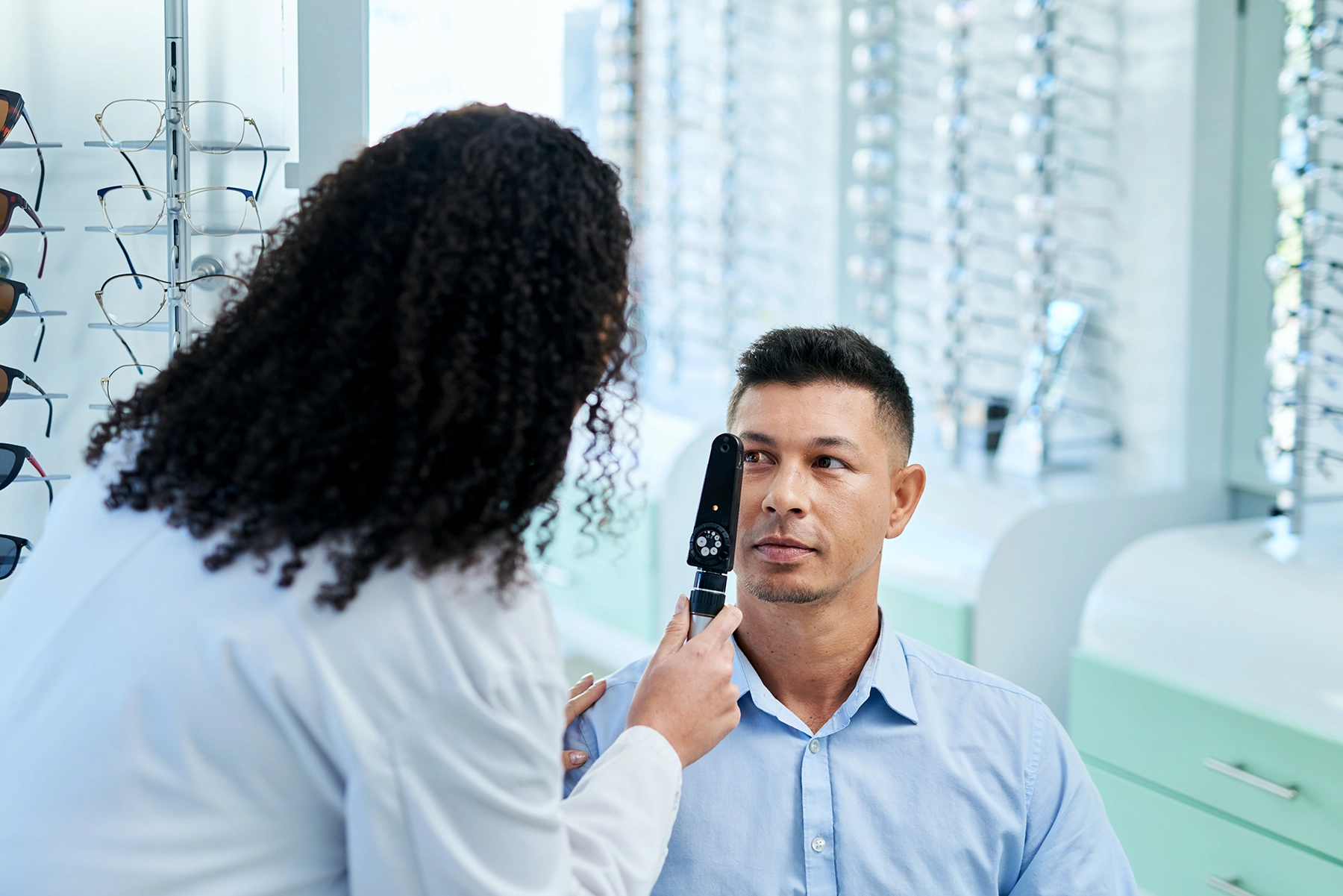Who May Need Specialty Contact Lenses?

Professional eyecare can correct all kinds of conditions. However, for some people, conventional treatment isn’t enough.
“A lot of patients have tried conventional contact lenses or glasses, and they haven’t been able to get a significant improvement in their vision, or they have fluctuations in their vision,” says Priscilla Sotomayor, O.D., an optometrist at Bascom Palmer Eye Institute.
These kinds of persistent vision problems can keep people from performing their jobs or enjoying everyday activities. Other people may have challenges like chronic eye discomfort, and they may constantly think about their eyes.
For people with these hard-to-treat conditions, specialty contact lenses can be life-changing.
What are specialty contact lenses?
Specialty contact lenses differ from traditional soft contacts because they are custom-fitted for each patient. Only eye specialists who are trained in the fitting process can provide these lenses.
Most commonly, specialty contacts treat conditions such as:
- Cornea irregularities, including keratoconus. Keratoconus is an irregularly shaped cornea that can cause problems like blurred vision, astigmatism, and nearsightedness.
- Severe eye surface disease and damage, such as dry eye, trauma, corneal lacerations, and blepharitis (inflammation of the eyelids).
What is a scleral lens used for?
One popular type of specialty lens is called a scleral lens. This lens gets its name because of how it rests on the eye.
Rather than sitting on the cornea (in the center of the eye), its outer edges sit on the white part of the eye (the sclera). This forms a vault over the entire eye, which creates a smooth optical surface to help correct different vision problems.
The design also offers another benefit: It leaves a space to put a supply of sterile saline solution that lubricates the eyes throughout the day. This unique feature makes scleral lenses popular for patients with severe dry eye. Instead of manually applying eyedrops, their contacts do it for them.
PROSE lenses and other scleral options
PROSE treatment is a scleral lens frequently used to treat dry eye, blurry vision, light sensitivity, and other problems. It was the first ultra-customizable lens. Today, 15 fellowship-trained providers in the U.S. (including Bascom Palmer Eye Institute) offer this advanced treatment.
Since PROSE was introduced, many other customizable scleral lenses have become available. Technological advances continue offering new options and ways to create and customize lenses. For example, advanced imaging and molding techniques can help eye specialists create personalized lenses with growing efficiency and precision.
Other types of specialty lenses: RGPs and hybrids
In addition to scleral lenses, other specialty lenses are available. One is the rigid gas-permeable (RGP) lens. This is a hard lens that sits on the cornea. Its firm, stable shape and custom fit can make it more effective than traditional soft lenses. Like all specialty lenses, it is customized to the shape of each patient’s eyes.
Another type of specialty lens is called a hybrid lens. It combines the performance benefits of an RGP with the ease of wear of a soft lens.
See clearly again with custom-fitted lenses
The benefits of specialty contact lenses rely on a precise, custom fit. This usually takes tweaking and adjustments to get the lenses just right. Still, a vast improvement is often instantaneous.
“You put a lens on the patient, and they can see more clearly right away,” says Stephanie Frankel, O.D., an optometrist at Bascom Palmer. “It’s the most incredibly fulfilling sensation.”
Dr. Sotomayor recalls a patient in his 40s who felt really down about his blurry vision. He was not able to work, and his vision was getting worse.
“What brought him down the most was that he couldn’t see his little girls’ faces. He was really quiet. But after just applying a trial PROSE lens to his eyes, his face completely changed,” Dr. Sotomayor says. “His face lit up. Ever since then, he’s really opened up. He’s just a different man … It does make a difference in these patients’ lives.”
Learn more about specialty contact lenses at Bascom Palmer Eye Institute.
Barbara Sheehan is a writer for WGContent and a contributor to UHealth.
Tags: #1 eye hospital, Bascom Palmer, Bascom Palmer Eye Institute, contacts, optometry, vision correction
